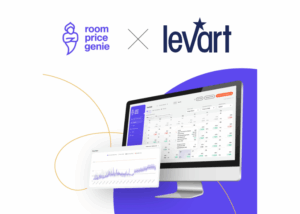After a rollercoaster year, we’ve put together some of our top tips for how you can make the most of your guest reviews. As borders reopen and domestic demand begins to soar, now is a great time to prioritise your marketing strategies. Focusing on managing and monitoring your reviews and recommendations from guests can be a low-maintenance addition to your property’s marketing approach, helping to drive organic interest in your property.
1. Be proactive
Solve problems before they arise. A negative experience can quickly turn into a PR nightmare and damage your reputation if you aren’t monitoring and managing guest feedback. Reacting to feedback made on a public platform is important, but also consider a more proactive approach.
Gauging and remedying guest satisfaction either whilst they’re still at your property or promptly post-checkout can go a long way toward turning a negative experience into a positive one.
Guests may still want to return to your accommodation if they feel you handled a complaint well, and they may be less inclined to publicly announce their negative experience which could deter other potential guests.
Sometimes the difficulty lies in getting reviews at all- positive or negative. Your guests are busy people and it can be easy to forget to leave a review after checkout. But sometimes all you have to do is ask!
Guests are three and a half times more likely to leave a review when asked by the property at the end of their stay, which is a process you could easily integrate with your post-departure email marketing. You can even incentivise a response by offering a small discount on their next booking exclusively available for guests who complete a review (hello return guests!)
2. Monitor and manage your digital presence
With the prevalence of social media, it is essential to monitor and manage digital reviews and what guests are saying about your property online.
It’s also important to be aware of the various platforms where your guests are leaving reviews of your property. It’s a great idea to find your favourite platform and use that to actively seek reviews from guests, but also regularly check other platforms to monitor any reviews there.
This is crucial for mitigating any negative experiences from guests (see step 1!). Negative reviews aren’t the end of the world, but ignoring or dismissing them can be. The way in which you handle and remedy poor experiences (think efficiency, professionalism and empathy) can convey a lot about your brand and even be the reason others choose your property.
If you haven’t already claimed your Google My Business Listing, now is well and truly the time to do so. Your business listing is the first thing potential guests will see when they search for your property and it’s also a very easy place for guests to leave reviews. You can manage your listing once you have claimed and verified the business, which gives you access to reply to reviews on Google.
Claiming and actively managing your listing has benefits far beyond reviews- this is also how you can attract direct bookings with Google Hotel Ads. If you need help claiming or managing your Google My Business Listing or setting up Google Hotel Ads, our Google certified staff can help!
3. Don’t forget traditional WOM (the verbal kind)
Word-of-mouth (WOM) are the conversations guests have with friends, family and others about their experience with your business. Whether it’s to recommend excellent service at the front desk or to complain about a room in need of a reno, guests talk!
Your guests have limitless potential value in terms of future bookings they might make if they loved their first experience. But if they’re telling anyone who will listen about their great getaway, you could be gaining a lot more future guests and strengthening your guest loyalty.
Again, it’s vital to understand what your guests are saying verbally about their experience at your hotel to be conscious of any negative experiences. But how can you get the inside scoop on guest experiences, especially if it’s expressed in conversation?
A great way is to initiate the conversation directly with your guests during their stay. This gives you time to adapt if the guests are unhappy or have any suggestions and provides an extra personal touch.
4. Own the guest experience
Guests experiences and perception about your brand begin well before they walk up to your check-in desk. From the very first interactions with your brand (and sometimes before) guests are subconsciously forming an opinion about your property. For online bookings, your website is a crucial aspect in making a good first impression. Pay special attention to your booking process and how easy and clear it is for guests to initiate a booking, adjust their search and see your rates and availability.
An integrated and mobile optimised booking engine that matches the style and design of your website will resonate authenticity and legitimacy with your guests. Ensuring guests can easily and effortlessly initiate a booking with a booking panel that remains visible on every page can really cut out the hassle and facilitate a seamless user experience.
There is nothing more frustrating than when search terms just result in a vague “no availability” message and you’re left with no choice but to blindly adjust your search. A grid layout visually distinguishing available and sold out dates and various rate options can really help to improve a guest’s interaction with your website.
5. Be your own cheerleader when it comes to reviews
Why not use your positive reviews as part of your marketing strategies? Let people know how satisfied your guests are and what they’re saying about your property and incorporate these testimonies in your marketing campaign features.
If you’re sending an email campaign about a family summer special on offer, include the testimonies referencing your wonderful pool facilities and kid-friendly entertainment. Showcase your great reviews on your website and social media to win over potential guests.
6. A picture tells a thousand words
Encourage conversation about your property on social media through hashtags, geo-location tags and keeping your brand presence up to date. User-generated content (that is content and images created by guests themselves) can have excellent (and effortless!) results in attracting attention to your brand within the wider public.
Guests sharing photos of the beautiful view from your resort’s balcony can serve as silent recommendations for your property. Using and encouraging guests to use location tags will also help your property be found by the right people and increase your brand exposure.
Local area tourism accounts such as this one use location tags to encourage interest in particular regions. Social media users can browse through all the content that has a particular tag associated and can find your property organically that way.



